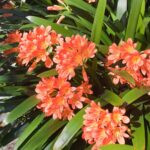Question From:
Serena Nielsen in Bethania, Logan Queensland
Nature of problem:
Is A Littoralis (black she oak) the only allocasurina with genders?
Type of Plant (if known):
N/a
Symptoms of Plant Illness (please try NOT to diagnose your problems yourself):
N/a
Soil Type (e.g. sandy, clay or loam) OR Potting Mix Type:
N/a
How often do you water the plant:
N/a
How many hours of sunlight does the plant get each day:
N/a
How long since you planted it:
N/a
Have you fertilised? If so, with what and when:
N/a
Is the plant indoors or outdoors:
N/a
Is the plant in a pot or in the ground:
N/a
What other treatments have you given the plant:
N/a
Upload photo if available:
Other Comments:
So got an unlabeled spp of casurina all I know that she stall holder said it had male/ female and grew to 15m so i thought if A Littoralis is gendered that could be it, but im assuming itsthe only one with gender? So are there other spp with male/female plants?
Answer:
Hi Serena, Most but not all She Oaks are dioecious: that is they have separate male and female trees. A. littoralis is in many ways the best of all She Oaks – it stabilises soils, is smallish, is attractive, and both Glossy Black Cockatoos andRed-Headed Finches eat its seeds. Don



